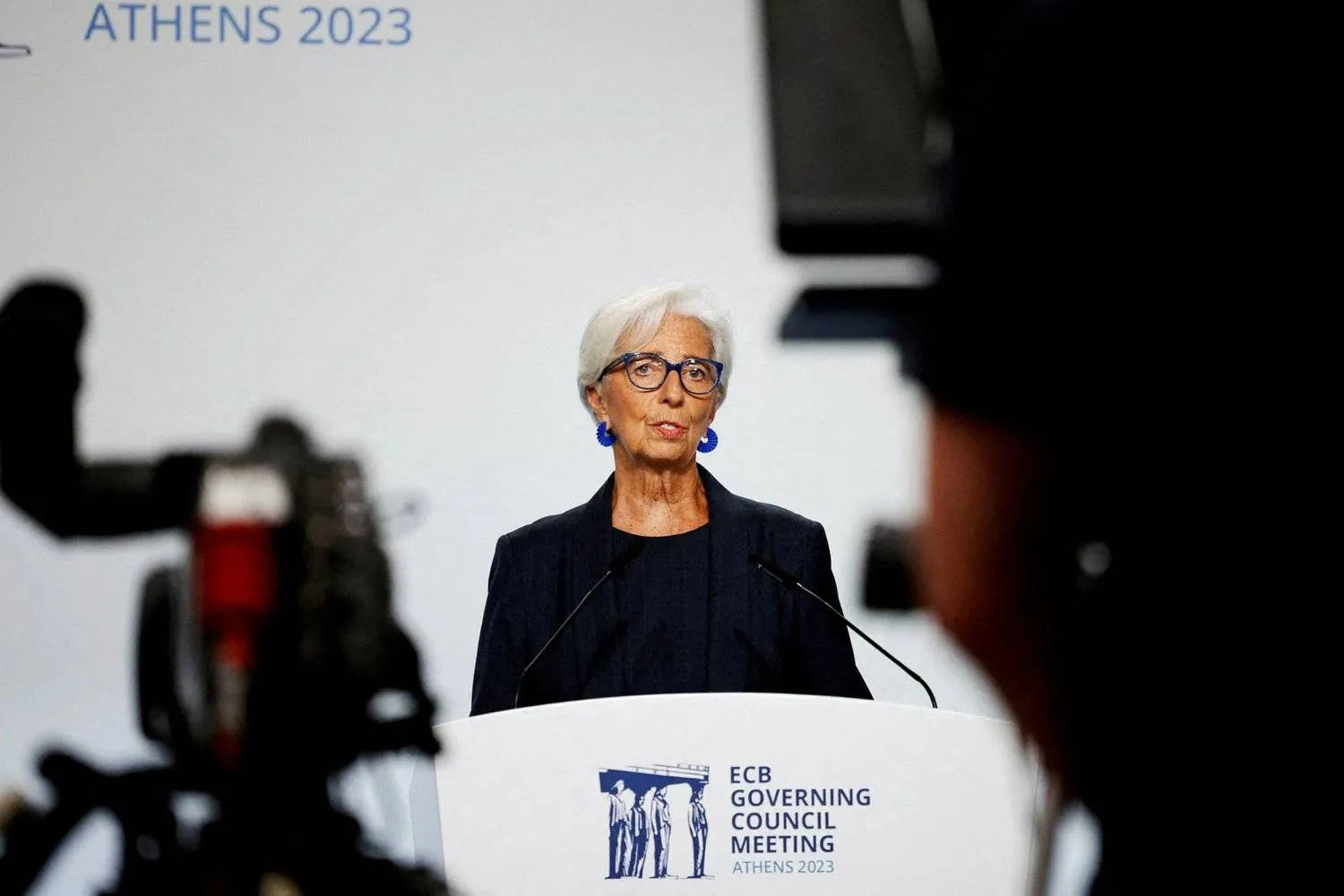Eurozone inflation could tick up in the coming months but European Central Bank interest rates held at their current level at least for several quarters could still get price growth back to 2%, ECB President Christine Lagarde said on Friday.
The ECB snapped a streak of 10 straight rate hikes last month and investors now expect the bank's next move to be a cut, perhaps as soon as in April.
A rapid fall in inflation to 2.9% last month only reinforced these bets but Lagarde warned that quick disinflation may be ending soon and price growth could even accelerate in the near term as high energy prices get knocked out of year-on-year comparisons.
"There will be a resurgence of probably higher numbers going forwards and we should be expecting that," Lagarde told a Financial Times event. "Even if energy prices were to remain reasonably flat now, we will be losing the base effect come January and February."
The ECB, which left its deposit rate unchanged at 4% last month, sees inflation back at target only in late 2025 with consumer price growth broadly stagnating at around 3% for most of 2024, according to Reuters.
Still, Lagarde hinted that even if inflation picks up, another rate hike may not be needed.
"We are at a level where we believe that, if kept long enough, - and this long enough is not trivial - will take us to the 2% medium-term target," Lagarde said.
When asked what long enough means, Lagarde said no change should be expected in the "next couple of quarters".
The ECB has repeatedly warned that budget restraint was a necessity to get inflation down and too much spending could force the central bank to tighten policy again to counter the fiscal impulse.
ECB chief economist Philip Lane earlier this week said that inflation readings could be in the "high twos and low threes" in 2024 before a fall to 2% in 2025.









